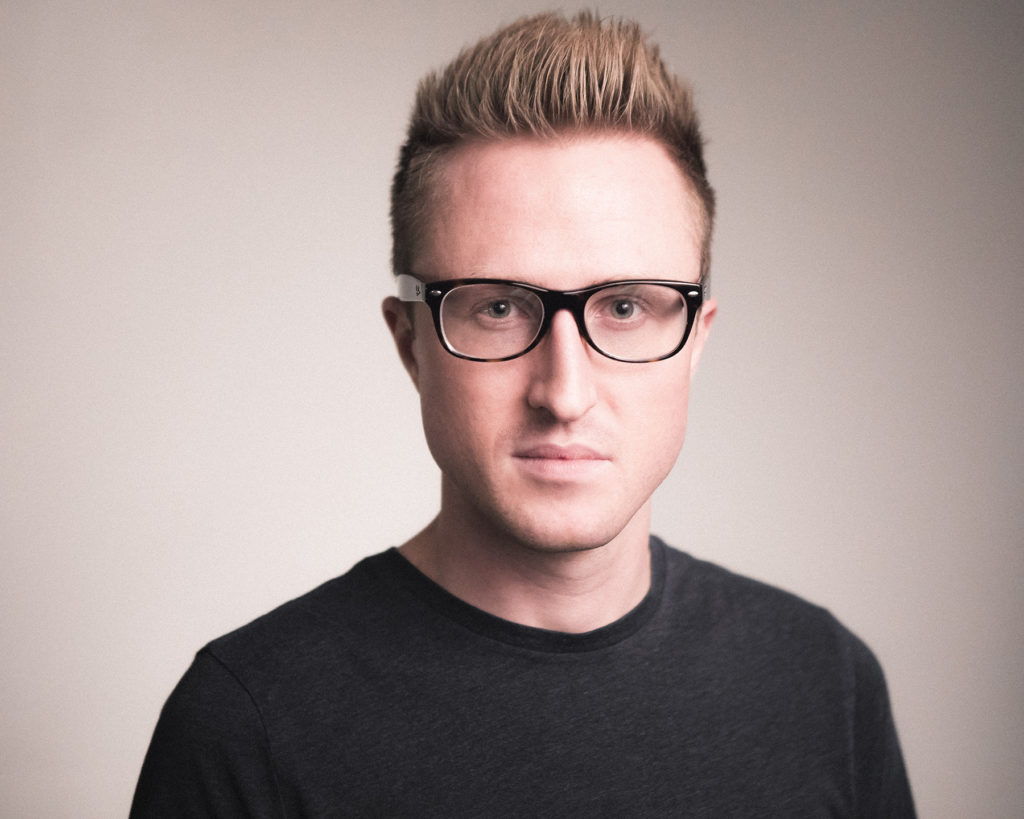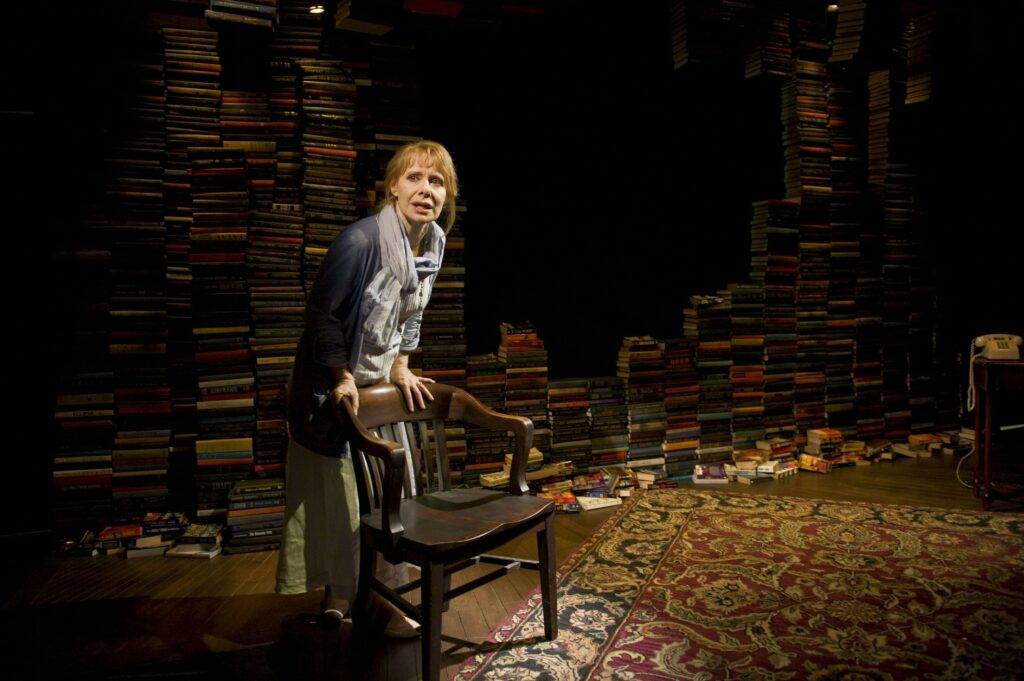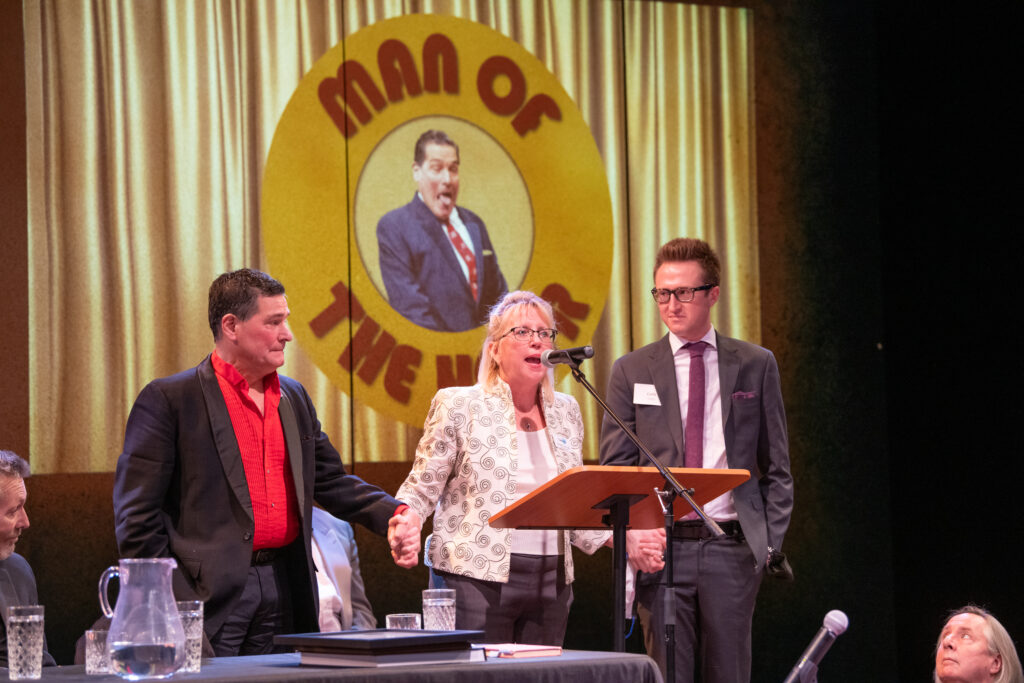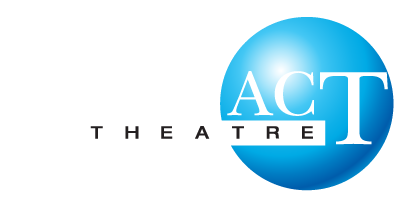Next Up
Cody Estle Takes a Seat in the Artistic Director’s Chair
In April 2022, Next Act Theatre announced a big change: Producing Artistic Director David Cecsarini would be retiring in January 2023 following 30 years in the position. A nationwide search was conducted for a new Artistic Director, and after considering more than 50 candidates, Cody Estle was selected in October 2022. Cody, the former Artistic Director of Chicago’s Raven Theatre, started at Next Act in December and spent the last two months overlapping with David, learning as much as possible and meeting the community. David officially handed over the keys at the end of January, and now it’s Cody’s show. We sat down to learn more about his background and what to expect from his time at Next Act.

Q: How did you get into theatre?
A: [Growing up in Ohio,] in fifth grade, my teacher decided to put on “The Legend of Sleepy Hollow.” There were no auditions, but she pre-cast me as Ichabod Crane. I think it was just because I was relatively tall and skinny. I remember afterwards everybody saying how well I did. I think what they really meant was “he was loud and the only one we could hear and understand.” There was a sense that I was good at it, supposedly.
My father took the baton and ran with it, and started having me professionally audition for all kinds of things. When I got to high school, I was doing the school shows, and by that time I was pretty much hooked.
Q: How did you make the transition to directing?
A: My high school theatre teacher, I remember him just saying to me one day, “you know, Cody, I think you might actually be a director.” Partially because I was more interested in what he was doing than what I was doing onstage.
When I went to college, I went in as a Directing major. I had actively looked for schools that allowed directing in the undergraduate program. I chose to go to Columbia College in Chicago: it was one of the only schools that allowed you to direct three fully-realized productions, in an actual theatre, not in a classroom, with a design team. The skills that I learned at Columbia allowed me to direct plays in storefronts in Chicago when I stepped out into the real world.
Q: How did directing in Chicago lead to your work at Raven Theatre?
A: I had a directing gig at Raven right out of school: the Artistic Director of Raven had come to see my work in school and must have thought, “this kid seems to know what he’s doing.” They took a chance on me to direct a play.
At the same time, at Writers Theatre, I had been hired to Assistant Direct a new play called THE DETECTIVE’S WIFE. I was assisting Gary Griffin. He was a Broadway director who directed THE COLOR PURPLE and other shows in New York.

Having those two jobs led to many other jobs. They opened the door to Chicago theatre.
I would spend the day at the big theatres assisting, and at night I would go and direct plays in the medium- and smaller-sized theatres, and whenever I had a free moment, I was working in the Second City box office selling tickets.
At a certain point, I realized that it would be a very tough living to just be a freelance director. When I would look at the directors who were making a living, they were attached to an institution: either an academic institution or a theatrical institution. It was more exciting to me to be in arts administration. I got hired to be the Artistic Assistant for a season at Northlight Theatre, and then a job came up at Raven, where I had continued to direct at least one show, sometimes two shows, per year. They were looking for an Associate Artistic Director, and I was hired.
I was there for three years, directing plays at Raven while also directing other plays outside, and then the job of Artistic Director at Raven came up. The founders were retiring, and I thought, “well, I’ll throw my name in the hat,” and I got hired. I was the Artistic Director there for five years.
Q: What drew you to Next Act?
A: When I took over at Raven, the Board and I came up with big goals for the theatre. I realized that all of the things I had set out to do, I had done. There was no reason that I needed to leave, but I had been there off and on for pretty much a decade, and I felt like I was ready for a new adventure – a new challenge.
I was directing a show at Northlight Theatre in Chicago and working with [Milwaukee sound designer and composer] Josh Schmidt. He was telling me how much he likes working at Next Act and that I should consider throwing my name in the hat for the job, so I did.
When I got here, I was struck by how everyone would say to me that the reason they come to Next Act is because of the thought-provoking plays that have been put on.

I think that David Cecsarini has done a really great job of programming plays that make you think, make you ask questions and allow you to have conversations about the play days after seeing it. That was enticing, on top of the fact that I really enjoyed getting to know the staff and the Board. I could tell that they were dedicated and eager to see a smooth transition and that they would have my back 110 percent.
Q: What are things about Milwaukee that have surprised you?
A: I didn’t realize how good the food scene would be. My partner and I live here in Walker’s Point, and we pretty much just keep picking different restaurants up and down 2nd Street. They’re all different, but they’re all very good.
Q: What can the Next Act audience expect from you going forward?
A: You can expect familiar directors. I would like to find ways to tell more stories set here in Wisconsin. To continue to find those plays that are thought-provoking while putting my personal touch on the programming. I have no desire to completely reinvent the wheel. I want to work with artists who are here to really portray the excellent talent pool that we have in Milwaukee.
Q: What continues to draw you to theatre?
A: There’s no other art form like it. The excitement that happens when the lights go down and you know that you’re getting ready to be transported into a different world, there’s nothing like it.
Every performance is different. It’s not repeatable. Yes, it’s the same play, yes, they’re saying the same lines, but a gesture might be different. The way a line hits an actor might be different.
I think a theatre like Next Act with its intimacy, to be right on top of those performers, watching them take you on a journey is extra-special. It’s what continues to make me want to make plays that are powerful, that make you think, laugh, cry. It just doesn’t get old for me.
